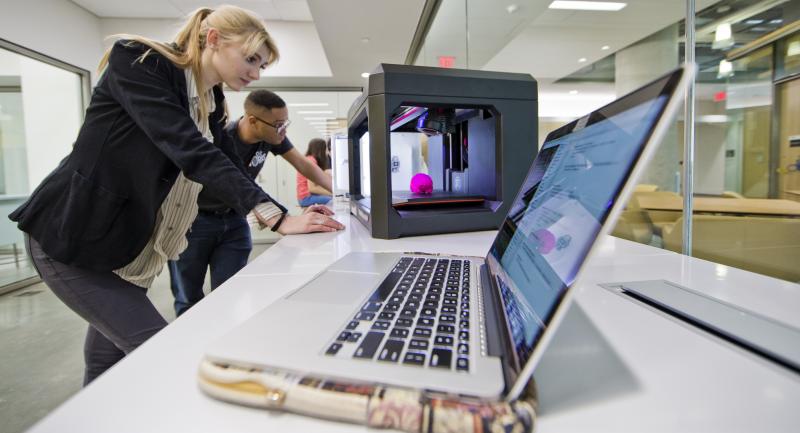
Project Overview
Additive manufacturing (3D printing) has begun to enable the fabrication of patient-specific medical devices, such as surgical guides used in dentistry. FDA and the University of Maryland are collaborating to verify that certain dental devices manufactured by 3D printing are biocompatible. This study will inform FDA reviews regarding the likelihood that novel 3D printing methods of medical (dental) devices will cause allergic, inflammatory or other toxicological reactions in patients. Furthermore, our work may assist FDA in guiding medical device manufacturers to prevent serious adverse events. These findings are expected to directly improve quality assessment and control of a new generation of medical device products manufactured right at the bedside that are designed to meet individual patient needs.
Preliminary information from industry manufactures of 3D printers and feedstock suggests that certain resins, when 3D printed, may be biocompatible for direct patient contact in dental procedures, including oral surgery. Our studies are designed to study biocompatibility and other features that may in serious local and systemic effects of patient exposure to these types of 3D printed medical devices.
A principal focus of the group's work will be evaluation on Form2 Dental LT resin using a new SLA printer workstation dedicated specifically for this research. The use of a dedicated printer exposed to only one resin type will minimize contamination and simplify interpretation of data. The resin selected is promoted by FormLabs, Inc. for additive manufacture of Class IIa medical devices; however the supporting data provided by the equipment manufacturer is not comprehensive. The group's work is intended to associate biocompatibility findings conducted under industry acceptance standards for final finished 3D-printed parts with precise parameters of 3D printing and process control. If our finished 3D prints are determined to meet the industry standards that FDA references for the intended use of these medical devices, then application of the manufacturing controls we will identify may be able to serve as guidance for the review of similar, commercial medical devices.
The group acknowledges that post-3D-print processing including chemical rinsing baths, exposure to ultraviolet light, controlled heating and sterilization methods may alter the chemistry of SLA 3D prints. Therefore, the group intends to evaluate changes in 3D print chemistry associated with post processing steps that are expected when a device sponsor is SLA manufacturing dental devices.
As the cost of repeatedly evaluating biocompatibility studies after each step in the manufacture of a medical device is very high, the group will utilize other analytical methods, such as mass spectroscopy to characterize changes in resin chemistry associated with 3D printing and post processing. These findings will inform whether a specific change in manufacture is likely to significantly increase risks of biological incompatibility. The group anticipates that the information they generate will benefit sponsors who must determine whether a change to their manufacturing process should be reported to FDA in a new 510k and also to FDA reviewers who must decide whether variations in manufacturing processes necessitate that a series of biocompatibility studies be repeated.
Top